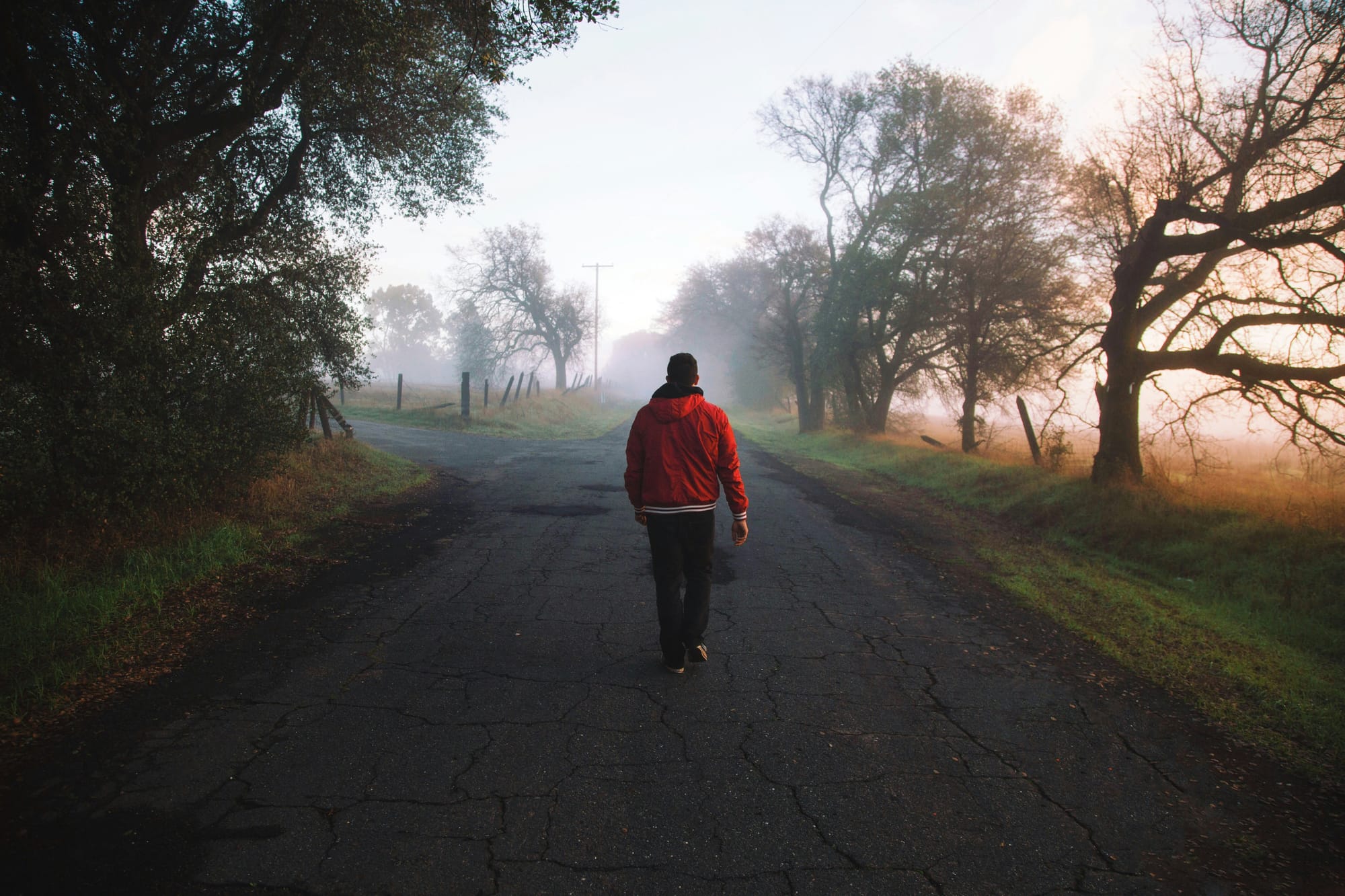Welcome to The Happier Newsletter, a weekly newsletter where I provide actionable ideas to help you build a happier, healthier, and more meaningful life.
What’s On Today
- Topic: How To Live According To Your Values
- Explanation: Why We Are Lonelier Than Ever
- Solution: The Cure For Loneliness
What They Don’t Tell You About Loneliness

In 2020, I moved from the Netherlands to Australia. It was always my dream to move abroad, not that I ever thought about moving as far as the other side of the world, but when it finally happened, I could’t be more excited.
But soon after moving, just like the rest of the world, COVID hit Australia and the country shut its borders, both internationally and between states.
Now coming from Europe, especially having studied in a city like Maastricht, where the border of Belgium and Germany are only a 15 to 20 minute bike ride away, I felt very much so isolated.
You see, besides the city of Adelaide, which is number 5 in the list of biggest cities in Australia (and mind you there are only 8 cities), there’s nothing much to do or see.
The population density is so low that you can literally drive for hours without seeing anyone, and that’s just within the state of South Australia.
So, after a couple of months into COVID, I felt really lonely and started to question everything:
- What am I doing here?
- Do I even like living in Australia?
- Is living in Australia worth my unhappiness?
I really went to some dark places but thankfully I didn’t leave it all behind, because I couldn’t be any happier than where I am now with our baby boy on the way.
Obviously, I wasn’t alone in this and research shows that there was a worlwide increase in loneliness since the start of the pandemic.
But this wasn’t just because of Covid, over the last few decades, more and more people across the globe express prolonged feelings of loneliness.
The former Surgeon General of the United States, even has sounded the alarm in his report, entitled Our Epidemic of Loneliness & Isolation.
A few statistics immediately jump out:
- The amount of time teenagers are spending in person with their friends is down 70% over the last two decades.
- 60% of adults say they don't feel very connected to others.
- Loneliness and social isolation increase the risk for premature death by 26% and 29%, respectively.
With these harsh truths in mind, it's crucial that we confront loneliness head-on, which begs the question: “What can we do about this epidemic of loneliness?”
Why We Are Lonelier Than Ever
It’s easy to pinpoint the increase of loneliness solely on the recent development of social media. But what we know is that feelings of loneliness already started to increase in the 1950s due to social dislocation.
During these times, we’ve become a much more mobile society where the networks of family and friends get disrupted as people move for jobs and education to other cities.
It’s also when the TV took over home entertainment, which caused a decline in investing in communities as people rather stayed in than go out in the community.
This was made worse as the digital revolution gave us more and more screens to look at and software that was designed specifically to grab our attention, hold our attention, and therefore keep it away from the people we care about.
All of this has led to us spending less and less time with other people, making us feel less connected with others around us.
But there’s been another interesting development that has changed the way we communicate; our societies have become more and more independent.
Society is sort of teaching us is to be independent and we’ve stopped learning how to function around other people and most importantly, how to support each other.
The Cure For Loneliness
Now, there’s a lot of advice out there telling you what to do and how to feel less lonely; but the truth is that most of this advice doesn’t work as it’s simply focused on YOU.
You have a problem, so YOU need to fix it. But loneliness isn’t something that you can fix by yourself - you need another human being to fix it.
But as our societies are becoming more and more dependent on independence, it becomes harder and harder to connect to another human being and to get the help we need from our family and friends. And as long as our strategies are independent, we will never fix loneliness.
So, what can we do that is actually helpful?
Well, we first need to get comfortable with being alone.
There’s no reality where you're always going to be surrounded with other people, so you need to get comfortable with being alone.
It’s in those moments that you have the chance to explore your own thoughts, passions, and dreams, and that you can grow as a human being.
But the real crux of the problem lies in that we don’t have the skills to help other people, so we need to learn these skills in order to help others.
People nowadays don’t really know how to help another human being. We don’t learn how to listen or have difficult conversations anymore, so we don’t really have the skills to be there for our friends, and build deep and meaningful relationships.
And not only do we not have the skills to be there for our friends, but the way we react to that is by trying to seek resources to help me rather than teach me how to help my friends.
At the end of the day, the more that we as a society are equipped to help others, the more that there are other people to help us, and the less lonely we’ll be able to feel.
